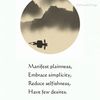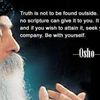Færsluflokkur: Bloggar
4.8.2009 | 15:20
Buddha practices zazen, not you
While you do zazen you will come to understand yourself completely and realize that there is no such thing as an “I” which exists. Still, in this moment, there is something participating in cosmic activity. In this moment, something exists as a part of cosmic activity, or as a part of temporal existence and in this way “I” has an absolute value in itself.
If you think, “I practice zazen,” that is a misunderstanding. Buddha practices zazen, not you. If you think, “I practice zazen,” there will be many troubles. If you think, “Buddha practices zazen,” there will be no trouble. Whether or not your zazen is painful or full of erroneous ideas, it is still Buddha’s activity. There is no way to escape from Buddha’s activity.
Thus you must accept yourself and devote yourself to yourself, or to Buddha, or to zazen. When you become yourself, zazen will become zazen.
Suzuki-roshi
Sjá dharma talks ofl. með Suzuki roshi hér: http://suzukiroshi.sfzc.org/
Bloggar | Slóð | Facebook | Athugasemdir (0)
3.8.2009 | 10:53
Wanting to reform the world ...
Bloggar | Slóð | Facebook | Athugasemdir (0)
27.7.2009 | 07:57
Stutt viðtal við Jakusho Kwong-roshi
Hér getið þið horft á stutt viðtal við Jakusho Kwong roshi.
Jakusho Kwong er kennari Zen á Íslandi.
Í morgun settist lítill fugl í gluggakistuna mína og söng undurfagra söngva sína. Ég veit ekki hvers vegna, en þannig er náttúran. Fuglinn var agnarsmár, en söng af ótrúlegri snilld. Aftur og aftur söng hann sönginn sinn af öllu hjarta en flaug að lokum í burtu. Hvernig er þetta gert? Með öðrum orðum hvernig getur maður sýnt hjarta sitt? Hvernig er hægt að vera hér og nú af öllu hjarta, hvar sem er, hvenær sem er og hver sem maður er? Hvernig er því skilað til annarra? Þetta eru stórar spurningar.
Jakusho Kwong-roshi – No beginning, No End
Bloggar | Breytt s.d. kl. 16:53 | Slóð | Facebook | Athugasemdir (0)
26.7.2009 | 09:35
Yoga
Yoga means union. Although many people think this term refers to union between body and mind or body, mind and spirit, the traditional acceptance is union between the Jivatman and Paramatman that is between one's individual consciousness and the Universal Consciousness.
Therefore Yoga refers to a certain state of consciousness as well as to methods that help one reach that goal or state of union with the divine.
Sivananda
Bloggar | Slóð | Facebook | Athugasemdir (0)
25.7.2009 | 11:51
The Future of Buddhism: Genpo Roshi í dag kl. 18
The Future of Buddhism:
Big Mind, Big Heart, and the Evolution of the Dharma
with Genpo Roshi
Saturday, June 18th, 11:00am Pacific;
12:00 Mountain; 1:00 Central; 2:00 Eastern;
18:00 GMT
Genpo Roshi is changing the face of Zen--now and for the future. He is part traditional Zen Master and part modern spiritual innovator and his original teaching method, Big Mind, Big Heart, enables even the novice student to have a direct and potentially life changing experience of their own true nature. In this teleseminar, Genpo Roshi will share with us the essence of Big Mind, Big Heart and will speak about why it is vital that we find new ways of understanding, teaching and practicing the timeless spiritual paths of the East. Experience for yourself how his unique combination of tools and methods successfully weds Western psychology and science with the ancient wisdom traditions.
About Genpo Merzel Roshi
Dennis Genpo Merzel Roshi (born 1944) founded the Kanzeon International Sangha in 1982. He has been Abbot of Big Mind Western Zen Center, (formerly known as Kanzeon Zen Center) in Salt Lake City, Utah, since 1987. He received dharma transmission in both the Soto Zen and Rinzai Zen traditions. He is the second Dharma Successor of Taizan Maezumi Roshi, with whom he began his Zen practice in 1972. In 1996 he received inka (final seal of approval
as Zen Master) from Roshi Bernard Glassman, Glassman being Maezumi's first Dharma Successor. In 1999 he originated the Big Mind process, which has become central to his teaching since then. Roshi's publications include: The Eye Never Sleeps, Beyond Sanity and Madness, 24/7 Dharma, and The Path of The Human Being. His latest book, Big Mind/Big Heart: Finding Your Way, was published in the Fall of 2007.
Access Instructions
To listen live by phone, dial 712-432-8900
Access code: 59618#
To listen live online, click here or go to http://www.instantteleseminar.com/?eventid=8348223.
To download the audio after the teleseminar is complete, click here or go to http://www.instantteleseminar.com/?eventid=8348223.
Bloggar | Slóð | Facebook | Athugasemdir (2)
23.7.2009 | 10:36
The Bodhisattva Ideal - Buddhism and the Aesthetics of Selflessness
A group of people was once traveling through a desert, when it so happened that three of them strayed away and got lost. Tired and thirsty this trio wandered around the desert in the hope of finding some respite. Finally their quest came to an end when they discovered a high well. The first man rushed to it, looked over the wall and found it full of delicious ambrosial water. He immediately exclaimed in a gesture of frenzied euphoria and jumped into it never to come back. The second too did the same. The third man finally walked over quietly over to the well, peeped over its high wall and then turned around and went back, returning to the desert to search for his other fellow travelers, to help guide them to this paradise.
The life of a bodhisattva too is made of similar stuff. In strictly canonical terms a bodhisattva is defined as an individual who discovers the source of the Ultimate Truth better known as nirvana, but postpones his own enlightenment until he has guided all his fellow beings to this same source of fulfillment. A formidable task to say the least. The path of the bodhisattva is thus one of extreme self-denial and selflessness. According to the Lankavatara sutra (4th century BC):
"A bodhisattva wishes to help all beings attain nirvana. He must therefore refuse to enter nirvana himself, as he cannot apparently render any services to the living beings of the worlds after his own nirvana. He thus finds himself in the rather illogical position of pointing the way to nirvana for other beings, while he himself stays in this world of suffering in order to do good to all creatures. This is his great sacrifice for others. He has taken the great Vow: "I shall not enter into final nirvana before all beings have been liberated." He does not realize the highest liberation for himself, as he cannot abandon other beings to their fate. He has said: "I must lead all beings to liberation. I will stay here till the end, even for the sake of one living soul."
The word 'bodhisattva' itself is prone to a rich etymological analysis. It is composed of two words 'bodhi' and 'sattva' both of which connote deeply spiritually meanings. Bodhi means "awakening" or "enlightenment," and sattva means "sentient being." Sattva also has etymological roots that mean "intention," meaning the intention to enlighten other beings. Thus the composite word bodhisattva signifies the very essence of the divine beings it refers to.
Nitin Kumar
Bloggar | Breytt s.d. kl. 10:38 | Slóð | Facebook | Athugasemdir (0)
22.7.2009 | 13:37
We Have to Let Go
People always ask: How can I integrate my spiritual realization into my everyday life? But that question doesn’t really make sense. Consciousness has no beginning and no end. Spirit is absolute in nature, and that’s why it’s so completely liberating. We simply cannot fit that which is infinite and absolute into a relative context that is limited, fixed, and restricted. We have to be willing to open up our minds and our hearts and our souls and allow ourselves to be carried away. And once we’ve let go, really let go, then and only then can we look at our lives and see what makes the most sense.
Andrew Cohen
Bloggar | Slóð | Facebook | Athugasemdir (0)
21.7.2009 | 07:22
We sit together, the mountain and me ...
The birds have vanished into the sky,
And now the last cloud drains away.
We sit together, the mountain and me,
Until only the mountain remains.
Li T'ai-po (701-?)
Bloggar | Slóð | Facebook | Athugasemdir (0)
19.7.2009 | 20:45
Do not pursue the past. Do not lose yourself in the future.
Do not pursue the past.
Do not lose yourself in the future.
The past no longer is.
The future has not yet come.
Looking deeply at life as it is
In the very here and now,
The practitioner dwells
In stability and freedom.
We must be diligent today.
To wait until tomorrow is too late.
Death comes unexpectedly.
How can we bargain with it?
The sage calls a person who knows
How to dwell in mindfulness
Night and day
"One who knows the better way to live."
Bhaddekaratta Sutra
Bloggar | Slóð | Facebook | Athugasemdir (0)
Those who seek liberation for themselves alone cannot become fully enlightened. Though it may be said that one who is not already liberated cannot liberate others the very process of forgetting oneself to help others is itself liberating. Therefore those who seek to benefit themselves alone actually harm themselves by doing so, while those who help others also help themselves by doing so.
Muso Kokushi (1275-1351)
Bloggar | Slóð | Facebook | Athugasemdir (0)
Um bloggið
OM - ॐ
Færsluflokkar
Tenglar
Hugleiðslunámskeið á Íslandi
- Námskeið hjá Hugleiðslu- og friðarmiðstöðinni
- Sahaja yoga-hugleiðsla
- Hugleiðslunámskeið hjá Brahma Kumaris
- Sri Chinmoy miðstöðin á Íslandi
- Andartak.is - Kundalini jóga og hugleiðsla
- Zen-hugleiðslunámskeið
- Dharma.is - Innsæishugleiðsla
- Innhverf íhugun
Frí hugleiðslunámskeið á Netinu
- Free Meditations
- Námskeið í búddískri hugleiðslu
- Námskeið í Kundalini yoga
- Free online meditation course
- Free Sahaja meditation course online
Hugleiðsla
Hér er að finna tengla þar sem þú getur lært og kynnt þér hugleiðslu.
- Listin að hugleiða
- Zen á Íslandi - Zen-hugleiðsla
- Kristbjörg
- Kundalini-hugleiðsla
- Hugleiðslu- og friðarmiðstöðin
- SGI-búddismi á Íslandi
- Sri Chinmoy miðstöðin á Íslandi
- Skandinavíski yoga- og hugleiðsluskólinn
- Leiðbeiningar fyrir Zen-hugleiðslu
- Sahaja Yoga
- Brahma Kumaris - Raja Yoga hugleiðsla
- Jack Kornfield - Insight Meditation (vipassana)
- Centerpointe
- Ljósmiðlun
- Traditional Yoga and Meditation of the Himalayan Masters
- Innhverf íhugun
- Vipassana meditation course
Helg forn rit
- Veda-ritin
- Bhagavad Gita
- Bhagavad Gita
- Upanishads
- Upanishads
- Shiva sutra
- Brahma Sutra
- Yogasútrur Patanjalis
- Rig Veda
- Sama Veda
- Hatha Yoga Pradipika
- Shiva Samhita
- Gheranda Samhita
- Sacred Texts (Helg indversk rit)
- Biblían
- Dhammapada
- Kóraninn
Tímarit um andleg málefni
- Tímaritið Knowledge of reality
- Bindu - Tímarit Skandinavíska yoga- og hugleiðsluskólans
- Tímaritið Gangleri
- Primary Point - Zen
- Efnisskrá Ganglera frá 1926
- The Sufism Journal online
- The Theosophist
Bækur á íslensku um andleg málefni
- Starfsrækt (Karma yoga) - Swami Vivekananda
- Allar bækur Gunnars Dal
- Bækur eftir Alice Baily
- Martínus - Bækur á íslensku
- Launviska Vedabóka
Bækur um andleg málefni
- The Unknown Life of Jesus Christ
- Bók um Kriya Yoga
- Sjálfsævisaga Jóga
- Whispers from Eternity - Paramahansa Yogananda
- The Path - Swami Kriyananda
- God is for Everyone - Inspired by Yogananda
- My time with the master - Paramahansa Prajnanananda
- The Universe Within - Paramahansa Prajnanananda
- The art and science of Raja Yoga - Swami Kriyananda
- Complete work of Swami Vivekananda
- Gopi Krishna - Bækur, greinar og viðtöl
- Bókin Zen and the brain
- Zen Mind, Beginner´s Mind - Shunryu Suzuki-roshi
- Manual of Zen Buddhisim - D. T. Suzuki
- Stripping the Gurus
- Rödd þagnarinnar á ensku
- Eckhart Tolle - Stillness Speaks - Hljóðbók
- Bækur eftir Ramana Maharshi
- Saundarya Lahiri
- The Meditative Mind - Krishnamurti
- Krishnamurti´s Notebook
- Meditations - Krishnamurti
- The Serpent Power
- C. W. Leadbeater - Chakras: A Monograph
- Kundalini Yoga - Swami Sivananda
- Fríar bækur með Krishnamurti
- The Tibetan Book of Dead
- Karma Yoga - Swami Vivekananda
- Leiðarljós (Light on the Path) á ensku
- The Power of Now - Hljóðbók
- Hljóðbókin Breath sweeps mind eftir Jakusho Kwong-roshi
- Opening the Hand of Thought Bók eftir Kosho Uchiyama
- To shine one corner of the world : moments with Shunryu Suzuki : stories of a Zen master told by his students
- How to Cook your Life - Dogen
- The Art of Just Sitting: Essential Writings on the Zen Practice of Shikantaza
- On Zen Practice
- On Having No Head
Greinar um andleg málefni
- Greinasafn Lífspekifélagsins/Guðspekifélagsins
- Greinar eftir Sigvalda Hjálmarsson
- Greinar og rannskóknir tengdar kundalini
- Krishnamurti - Greinar, viðtöl og tilvitnanir
- Hugleiðingar um kenningar Sigvalda Hjálmarssonar - I. Hluti
- Hugleiðingar um kenningar Sigvalda Hjálmarssonar - II. hluti
- Greinar úr zen-tímaritinu Primary Point
- Greinar eftir dr. Erlend Haraldsson
- Greinasafn Jóns L. Arnalds
- Yður er í dag frelsari fæddur? - Njörður P. Njarðvík
- Yoga og geðrækt
- Leiðin til hugljómunar - Sigvaldi Hjálmarsson
- Geinar úr tímaritinu Quest
Ýmsir tenglar andlegs eðlis - Íslenskir
- Kærleikssetrið
- Jógakennarafélag Íslands
- Lífspekifélagið/Guðspekifélagið
- AA
- CoDa
- Viska og gleði
- Kærleikssamtökin
- Björg Einarsdóttir
- Trú.is
- LAUSNIN - Baráttusamtök gegn meðvirkni
- Dharma.is - Innsæishugleiðsla
- Dulheimar - Andleg þróunarheimspeki
- Vetrarbrautin.com
- Listi yfir skráð trú- og lífskoðunarfélög á Íslandi
Ýmsir tenglar andlegs eðlis - Erlendir
- DharmaTalk með Thich Nhat Hanh
- Agni Yoga
- Meditation of the Himalayan Masters
- Vedanta Society
- Vedanta.com
- tantra-kundalini.com
- Ayurveda-próf - Hvaða líkamsgerð ertu?
- Prajnanamission
- Big Mind
- Vedanta Spiritual Library
- Great Integral Awakening
- Sounds True
- Wildmind - Buddhist Meditation
- Institute for Consciousness Research
- Biology of Kundalini
- Kundalini Research Network
- Hindu Tantrik Tradition
- Inner Self
- Spirit Voyage
- Dalai Lama kyrjar möntru úr Rig Veda
- Ýmislegt um Ramakrishna
- The Five Tibetan Rite
- Message from masters
- Bæklingur um sanskrítarframburð
- The Theosophical Society - International Headquarters
- Sri Vidya
- Vedanet
- Eastern tradition - Eastern Tradition Research Archive
- Lífspekifélög/Guðspekifélög um allan heim
Ýmsir andans menn
- Sigvaldi Hjálmarsson
- J. Krishnamurti
- Ken Wilber
- Gopi Krishna
- Swami Sivananda
- Osho
- Deepak Chopra
- Swami Vivekananda
- Sri Ramakrishna
- Yogi Hari
- Eckhart Tolle
- Yogi Shanti Desai
- Yogi Amrit Desai
- Shunryu Suzuki roshi
- Ramana Maharishi
- Sri Aurobindo
- Paramahansa Yogananda
- Paramahamsa Hariharananda
- Jakusho Kwong-roshi
- Jack Kornfield
- Swami Rama
- Grétar Fells
- D. T. Suzuki
- Dalai Lama
- Thich Nhat Hanh
- Eckhart Tolle
- Helena Blavatsky
- Paramahamsa Prajnanananda
- Rupert Spira
- Bodhidharma
- Om Swami
Lífspeki/Guðspeki
- Lífspekifélag Íslands
- Lífspekifélagið í USA
- Helena Blavatzky
- Facebook-síða Lífspekifélags Íslands
- Aðalstöðvar Lífspekifélagsins á Indlandi
Kriya Yoga
Hér er að finna tengla tengda Kriya Yoga
- Kriya Yoga Institute
- Paramahansa Hariharananda
- Paramahamsa Prajnanananda
- Bækur um Kriya Yoga eftir Hariharananda og Prajnananda
- Self-Realization Fellowship
- Ananda: The Teaching of Paramahansa Yogananda
- Cyberspace Ashram for Kriya Yoga
- Bókin Sjálfsævisaga jóga (Autobiography of a Yogi)
- Kriya Yoga - Swami Shankarananda Giri
- Kriya Yoga - Yogi Dhirananda
- Bók um Kriya Yoga á Netinu
- Kriya Yoga in the Lahiri Mahasaya family tradition
- Babaji´s Kriya Yoga
- Myndbönd um kriya yoga
- Prajnanamission
- Babaji Kriya Hatha Yoga - 18 Kriya Postures
- Umsókn - Kennslustundir hjá SRF
Hatha Yoga (Líkamsstöður - Teygjur)
- Yogavin
- Jóga hjá Kristbjörgu
- Jóga Stúdíó
- Jógakennarafélag Íslands
- Jóga Jörð
- Jen Reviews
- Sólir
- Yogashala
- Jógakennarar og jógastöðvar á Íslandi
Zen
- Zen á Íslandi
- Sonoma Mountain Zen Center
- Bókin Zen Mind, Beginners Mind eftir Shunryu Suzuki-roshi
- Bókin No Beginning. No End eftir Jakusho Kwong-roshi kennara Zen á Íslandi
- Hljóðbókin Breath Sweeps Mind eftir Jakusho Kwong-roshi
- The Teaching of Shunryu Suzuki-roshi
- San Francisco Zen Center
- Myndbönd með Suzuki-roshi
- Plum Village - Thich Nhat Hanh
- Zen of Recovery - Mel Ash
- Zen Road
- Zen sútrur
- Kwan Um School of Zen
- Daily Zen
- Big Mind
- Zen Peacemakers
- Suzuki-roshi 50
- Hljóðbókin Zen mind, beginner´s mind
- The Suzuki Roshi Audio Archive
- Opening the Hand of Thought Bók eftir Kosho Uchiyama
- To shine one corner of the world : moments with Shunryu Suzuki : stories of a Zen master told by his students
- How to Cook your Life - Dogen
- The Art of Just Sitting: Essential Writings on the Zen Practice of Shikantaza
- On Zen Practice
Bloggvinir
-
 thesecret
thesecret
-
 gudjonbergmann
gudjonbergmann
-
 gyda
gyda
-
 heringi
heringi
-
 gudmundurhelgi
gudmundurhelgi
-
 braxi
braxi
-
 fruheimsmeistari
fruheimsmeistari
-
 vilborg-e
vilborg-e
-
 steina
steina
-
 ludvik
ludvik
-
 maggadora
maggadora
-
 baenamaer
baenamaer
-
 perlaheim
perlaheim
-
 vestfirdir
vestfirdir
-
 vglilja
vglilja
-
 palmig
palmig
-
 einherji
einherji
-
 andreaolafs
andreaolafs
-
 flinston
flinston
-
 birnarebekka
birnarebekka
-
 tilfinningar
tilfinningar
-
 dizadj
dizadj
-
 gylforce
gylforce
-
 esa-emorea777
esa-emorea777
-
 estersv
estersv
-
 eydis
eydis
-
 gudjonelias
gudjonelias
-
 heildraent-joga
heildraent-joga
-
 heildraent-lif
heildraent-lif
-
 guru
guru
-
 tru
tru
-
 fun
fun
-
 jensgud
jensgud
-
 josira
josira
-
 katrinsnaeholm
katrinsnaeholm
-
 kari-hardarson
kari-hardarson
-
 kiza
kiza
-
 kjarvald
kjarvald
-
 kristinnhalldor
kristinnhalldor
-
 kiddirokk
kiddirokk
-
 krilli
krilli
-
 laufherm
laufherm
-
 mariaannakristjansdottir
mariaannakristjansdottir
-
 manisvans
manisvans
-
 nanna
nanna
-
 aronsky
aronsky
-
 huldumenn
huldumenn
-
 ragjo
ragjo
-
 rose
rose
-
 straitjacket
straitjacket
-
 vinur
vinur
-
 nimbus
nimbus
-
 slembra
slembra
-
 svanurg
svanurg
-
 toshiki
toshiki
-
 hanoi
hanoi
-
 thorhallurheimisson
thorhallurheimisson
Heimsóknir
Flettingar
- Í dag (13.9.): 0
- Sl. sólarhring: 2
- Sl. viku: 42
- Frá upphafi: 0
Annað
- Innlit í dag: 0
- Innlit sl. viku: 37
- Gestir í dag: 0
- IP-tölur í dag: 0
Uppfært á 3 mín. fresti.
Skýringar






